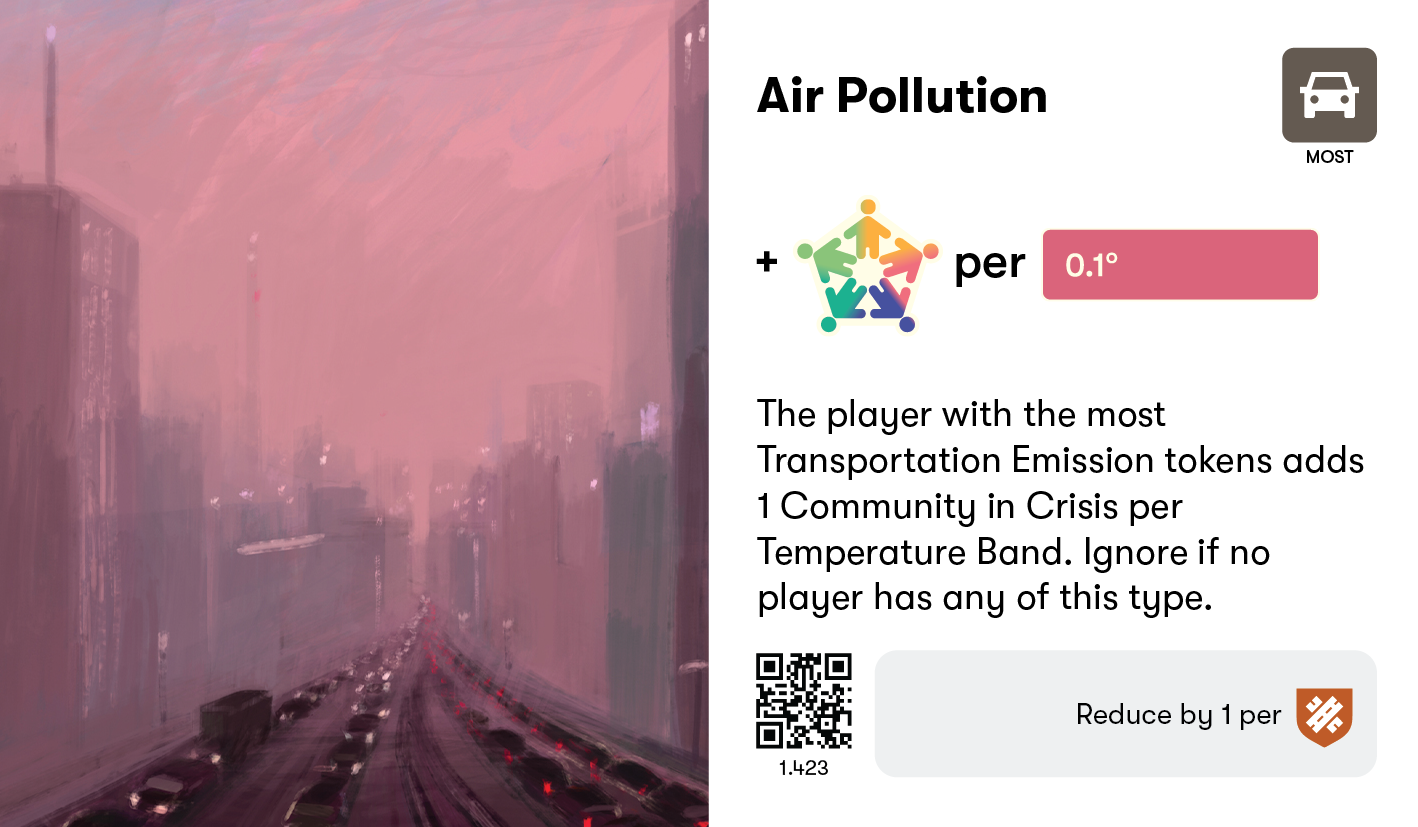Air Pollution
Crisis
Air pollution is the presence of harmful substances in the air we breathe. These substances can come from natural sources, such as wildfires and volcanic eruptions, as well as from human activities. Most commonly they appear as a result of the chemical process of burning fuel for transportation, energy production and industrial processes. As a result, air pollution tends to be more prevalent in densely populated urban areas and areas with high levels of industrial activity. Extreme weather events, temperature inversions, and increased ozone levels also contribute to an increase in the concentration of pollutants in the air.
Breathing impure air affects everyone. But children, elderly people, people with cardio-vascular diseases and chronic health conditions, as well as low income families living in close proximity to air pollution sources (like major roads) are particularly vulnerable.
Reducing greenhouse gas emissions can directly help reduce air pollution by limiting the burning of dirty fuels. Electrifying your own home is another way to reduce indoor air pollution. Increasing affordable access to public transport would be one way of reducing emissions from private vehicles. Ending uncontrolled deforestation, stopping the unfiltered release of toxins into the air from industries, and reducing demands of the meat industry (manure and animal feed release toxins) could also help reduce air pollution.
Ignore this Crisis if no player has any Transportation Emission tokens.
The player with the most Transportation Emission tokens must add 1 Community in Crisis per Temperature Band.
They can reduce this effect by 1 for each Infrastructure Resilience token in their player board.
For example: 5 Temperature Bands – 3 Infrastructure Resilience = add 2 Communities in Crisis.
Resilience tokens are not discarded.

Air pollution (World Health Organization)
Climate Explainer: Climate Change and Air Pollution (World Bank)
Campaign for your government to establish safe, affordable, accessible public transport systems, bicycles lanes and hangars, and long-distance trains to reduce demand for polluting private vehicles.
Advocate for your government to end deforestation and support local people and agricultural workers to switch to regenerative farming systems, reducing the air pollution from livestock farming.
Campaign for your government to ban fossil fuel production and phase out sales, while rolling out renewable energy infrastructure and helping people transition to cleaner sources of energy.
Use Rewiring America’s Personal Electrification Planner to electrify your home.